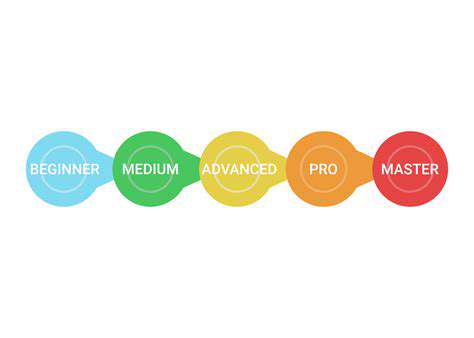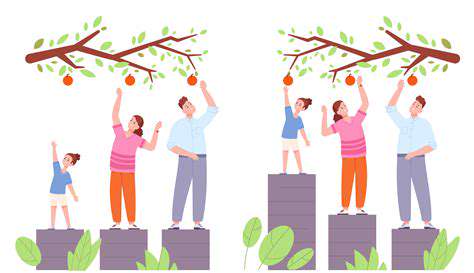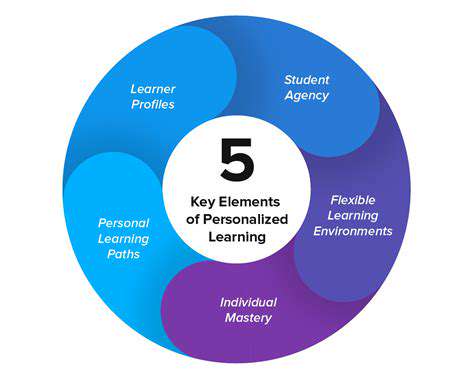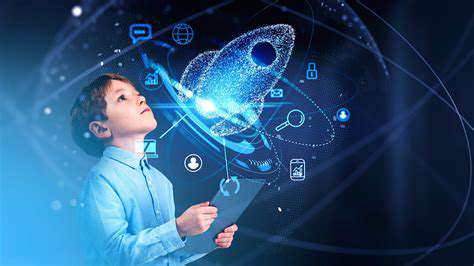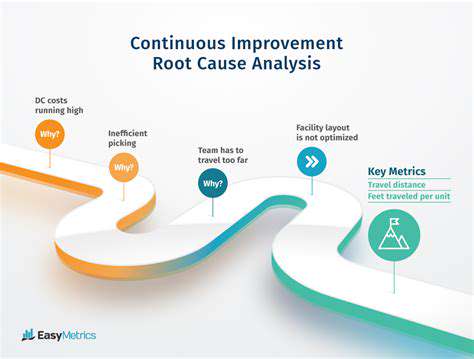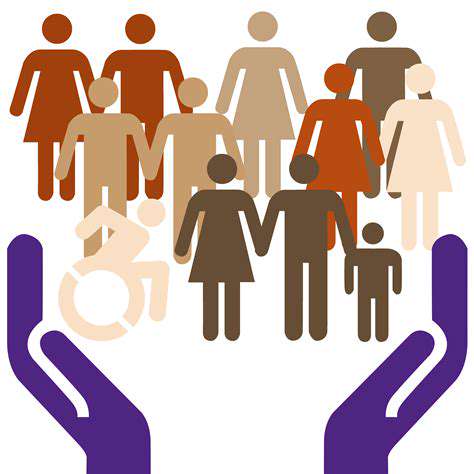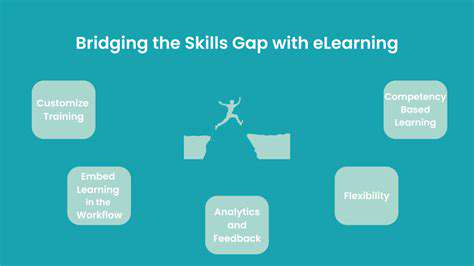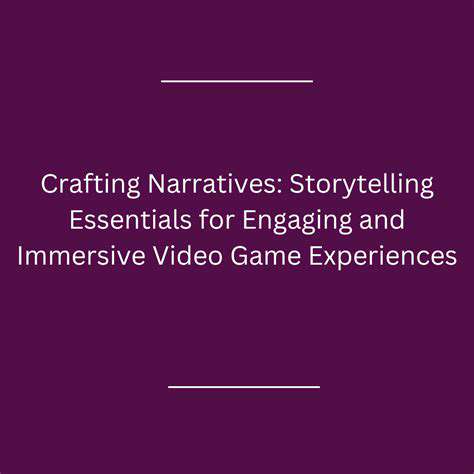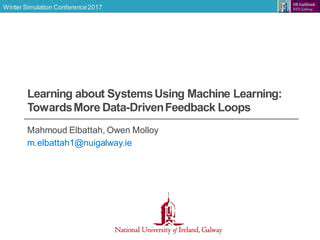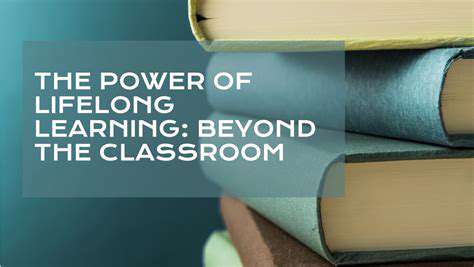Esports in Schools: Beyond Gaming to Skill Development
Beyond the Gaming Arena: Fostering Collaboration and Communication
Esports, often perceived as a solitary pursuit, can actually be a powerful catalyst for teamwork and communication skills development. Competitive gaming environments require players to coordinate strategies, adapt to changing situations, and communicate effectively with teammates in real-time. This dynamic interaction fosters crucial social-emotional learning, teaching valuable lessons about collaboration, conflict resolution, and respecting diverse viewpoints. Students learn to work together towards a common goal, a skill highly valued in both academic and professional settings.
The ability to adapt to changing circumstances is another significant benefit. Esports matches are rarely predictable. Players must be flexible and adjust their strategies based on opponents' actions and game flow. This adaptability translates directly into real-world problem-solving skills, allowing students to approach challenges with a more proactive and solution-oriented mindset. These experiences equip students with the resilience and resourcefulness needed to navigate complex situations in various aspects of their lives.
Bridging the Digital Divide: Equity and Access in Esports Education
Implementing esports programs in schools can potentially bridge the digital divide and create opportunities for students who might not otherwise have access to advanced technology or educational resources. Esports can be a powerful motivator for students, especially those who may struggle in traditional academic settings. The engaging nature of esports can inspire a love of learning and encourage participation in extracurricular activities, which can be highly beneficial for personal development and social integration.
By providing access to high-quality gaming equipment and reliable internet connections, schools can ensure that all students have the opportunity to participate in esports activities. This inclusivity fosters a sense of belonging and empowerment for all students, regardless of their background or socioeconomic status. Furthermore, the potential for scholarship and internship opportunities within the esports industry can open doors for students to pursue careers in technology, design, or management.
Creating a supportive and inclusive esports environment is critical to its success in schools. By emphasizing teamwork, sportsmanship, and fair play, schools can foster a positive and motivating learning environment that values both individual and collective achievement. This approach reinforces the importance of ethical conduct and respect for others, while encouraging healthy competition and personal growth.
Furthermore, esports can act as a powerful tool for promoting digital literacy and critical thinking skills. Students learn to analyze game mechanics, understand complex strategies, and evaluate different approaches to problem-solving. This translates into valuable skills in various academic disciplines and can enhance students' overall learning experience.
This approach to incorporating esports into the curriculum can benefit students from diverse backgrounds and abilities. It can also help bridge the digital divide, ensuring equitable access to educational opportunities for all.
The potential for scholarship and internship opportunities within the esports industry can open doors for students to pursue careers in technology, design, or management.
Developing Essential 21st-Century Skills
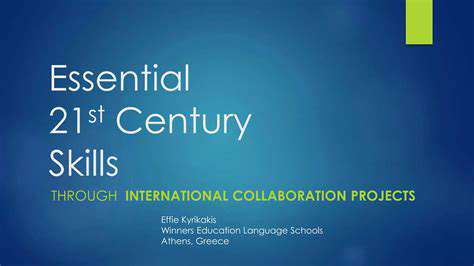
Developing Critical Thinking Skills
Developing critical thinking skills is paramount in today's rapidly evolving world. These skills are not just important for academic success; they are essential for navigating complex problems and making sound judgments in all aspects of life. Critical thinking involves analyzing information objectively, identifying biases, evaluating arguments, and forming well-reasoned conclusions. It requires the ability to question assumptions, consider alternative perspectives, and synthesize information from various sources. Mastering these skills allows individuals to approach challenges with a proactive and analytical mindset, ultimately leading to more effective problem-solving and decision-making.
Cultivating critical thinking involves engaging in activities that challenge assumptions and encourage independent thought. This includes reading diverse perspectives, participating in discussions, and actively seeking out different viewpoints. By consistently challenging our own beliefs and considering opposing arguments, we can develop a more nuanced understanding of the world around us and make more informed decisions. Encouraging open-mindedness and intellectual curiosity is crucial in nurturing critical thinking abilities, particularly in today's information-saturated environment where it is vital to discern credible information from misinformation.
Embracing Collaboration and Communication
Collaboration and communication are fundamental skills for success in the 21st century. The ability to work effectively with others is crucial for tackling complex problems and achieving shared goals. In today's interconnected world, individuals are increasingly required to collaborate across different disciplines, cultures, and geographical locations. This requires a strong understanding of diverse perspectives and an ability to communicate effectively with people from varied backgrounds. Building relationships, negotiating differences, and finding common ground are all vital components of successful collaboration.
Effective communication goes beyond simply conveying information; it involves active listening, clear articulation, and the ability to adapt communication styles to different audiences. Strong communication skills are vital for building trust, fostering positive relationships, and achieving shared understanding in various professional and personal contexts. In an increasingly globalized world, the ability to collaborate and communicate effectively will be essential for navigating intercultural differences and achieving common goals.
Furthermore, mastering digital communication platforms and tools is critical for effective collaboration and communication in today's digital age. This includes proficiency in various communication platforms, as well as an understanding of online etiquette and responsible digital citizenship. The ability to use technology effectively is increasingly important in facilitating meaningful interaction and information sharing across diverse groups.
The importance of adapting to new technologies and innovative approaches to information sharing in the 21st century cannot be overstated.
The Future of Education: Integrating Esports into the Curriculum
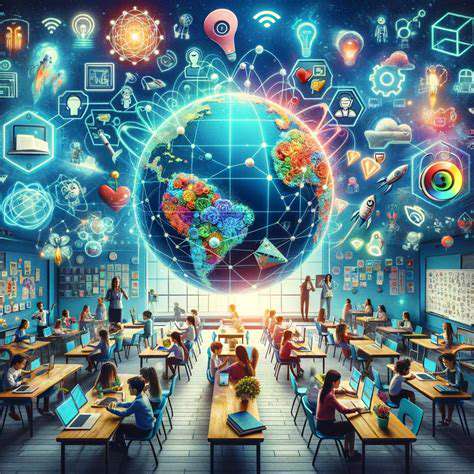
The Rise of Personalized Learning
Personalized learning is rapidly transforming the educational landscape, moving away from a one-size-fits-all approach to cater to the unique needs and learning styles of each student. This involves tailoring curriculum, pacing, and assessment methods to maximize individual student engagement and achievement. By focusing on individual learning preferences, educators can foster a deeper understanding of the subject matter and promote a more meaningful learning experience. This approach is not just about adapting the content; it's about adapting the entire learning environment to support each student's progress.
The integration of technology plays a crucial role in facilitating personalized learning. Interactive learning platforms, adaptive assessments, and personalized feedback mechanisms are becoming increasingly common. These tools allow educators to monitor student progress in real-time and adjust their instruction accordingly, ultimately leading to improved outcomes.
Embracing Technology in the Classroom
Technology is no longer a supplementary tool in education; it is becoming an integral part of the learning process. From interactive whiteboards to virtual field trips, technology enhances engagement and provides students with access to a vast amount of information beyond the traditional textbook. Learning environments are constantly evolving, incorporating innovative technologies to make learning more dynamic and engaging.
The shift towards digital learning resources is not just about replacing traditional methods; it's about creating opportunities for students to explore and interact with concepts in new and exciting ways. This digital transformation is equipping students with the essential 21st-century skills needed to thrive in a rapidly changing world.
Cultivating Critical Thinking and Problem-Solving Skills
In an increasingly complex world, the ability to think critically and solve problems effectively is paramount. Educational institutions are recognizing the importance of fostering these skills in students, encouraging them to analyze information, evaluate arguments, and develop creative solutions. This emphasis on critical thinking involves not just memorizing facts, but also understanding the underlying concepts and applying knowledge to real-world situations.
Promoting collaboration and communication skills is another crucial aspect of developing critical thinking. Students are encouraged to work together, share ideas, and engage in respectful dialogue. This collaborative learning environment fosters a deeper understanding of diverse perspectives and prepares students to become effective communicators and problem solvers.
Fostering Creativity and Innovation
Education is evolving beyond rote memorization and standardized testing to nurture creativity and innovation. This shift recognizes that students need to develop the ability to think outside the box, generate new ideas, and find creative solutions to complex problems. This new focus on creativity is crucial in preparing students for a future that demands innovative thinking and problem-solving skills.
Encouraging students to explore different subjects, take risks, and embrace failure as a learning opportunity is essential in fostering a culture of creativity and innovation. Encouraging experimentation, embracing unique perspectives, and celebrating diverse approaches are vital to fostering an environment where students feel empowered to think creatively and contribute to the world in meaningful ways.
Read more about Esports in Schools: Beyond Gaming to Skill Development
Hot Recommendations
- Attribution Modeling in Google Analytics: Credit Where It's Due
- Understanding Statistical Significance in A/B Testing
- Future Proofing Your Brand in the Digital Landscape
- Measuring CTV Ad Performance: Key Metrics
- Negative Keywords: Preventing Wasted Ad Spend
- Building Local Citations: Essential for Local SEO
- Responsive Design for Mobile Devices: A Practical Guide
- Mobile First Web Design: Ensuring a Seamless User Experience
- Understanding Your Competitors' Digital Marketing Strategies
- Google Display Network: Reaching a Broader Audience
